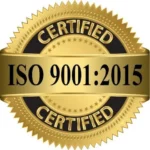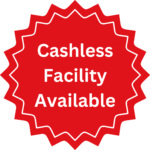Hernia Treatment in Pune
हर्निया उपचार केंद्र
डॉ. कामठेच्या पाईल्स क्लिनिकमध्ये आपले स्वागत आहे, येथे तुमच्या आरोग्यासाठी सर्व काही एकाच ठिकाणी उपलब्ध आहे. आम्ही हर्नियाचा तुमच्या वर झालेला परिणाम समजतो आणि तज्ञ काळजी आणि मार्गदर्शन प्रदान करतो. हर्निया म्हणजे काय आणि त्यावर मात करण्यासाठी आम्ही तुम्हाला कशी मदत करू शकतो ते पहा. आमची वैद्यकीय टीम तुम्हाला तुमच्या आरोग्यसेवा प्रवासात मार्गदर्शन करण्यासाठी नेहमी तयार आहे, तुम्हाला सर्वात प्रभावी उपचार मिळावा याची खात्री आम्ही करतो. आम्ही तुमच्या जीवनात नियंत्रण आणि आराम मिळवण्यास मदत करतो.

हर्निया म्हणजे काय?
हर्निया तेव्हा होतो जेव्हा एखादा अवयव त्याच्या जागी ठेवलेल्या स्नायू किंवा ऊतींच्या छिद्रातून ढकलतो. ही स्थिती बर्याच वेळी फुगल्यासारखी दिसून येते, आणि ती नेहमीच वेदनादायक नसली तरी, वेळेवर वैद्यकीय मदत घेणे महत्वाचे आहे.
हर्नियाची चिन्हे आणि लक्षणे
- फुगवटा किंवा ढेकूळ दिसून येणे
- वेदना किंवा अस्वस्थता,जास्त करून रोजची शारीरिक कामे करताना.
- दुखणे किंवा जळजळ होणे
- जडपणाची भावना वाटणे
- मळमळ किंवा उलट्या येणे
हर्नियाची कारणे
- ओटीपोटाच्या भिंतीमध्ये आशक्तपणा वाटणे
- जड लिफ्टिंग पासून ताण येते
- सतत खोकला येणे
- लठ्ठपणा
- वय-संबंधित स्नायू आशक्त होणे
हर्निया वरील उपचार
उपचार पर्याय बदलु शकतात आणि त्यामध्ये जीवनशैलीतील बदल, औषधे किंवा शस्त्रक्रिया यांचा समावेश असू शकतो. आमचे अनुभवी वैद्यकीय व्यावसायिक तुमच्या स्थितीचे तपासणी करतील आणि तुमच्या गरजांनुसार सर्वात योग्य उपचाराची शिफारस करतील.
प्रतिबंध
सगळ्या प्रकारचा हर्निया टाळता येण्यासारखा नसला तरी, योग्य आहार आणि नियमित वयं केल्याने धोका कमी होऊ शकतो. तुम्ही अजून उपाय करू शकता जसे कि वाहन नियंत्रणात ठेवणे, कमीत कमी वजन उचलणे, खोकला वरती नियंत्रण करणे, ई.
शस्त्रक्रियापूर्वीच्या सूचना
- शस्त्रक्रियेपूर्वी उपवास
- कोणतीही औषधे चालू असेल किंवा ऍलर्जीची बद्धल वैद्यकीय टीमला माहिती देणे
- शस्त्रक्रियेनंतर वाहतुकीची व्यवस्था करणे
शस्त्रक्रिया झाल्या नंतर च्या सूचना
- रोजच्या कामाला हळूहळू पुन्हा सुरू करणे
- जखमेची योग्य काळजी घेणे
- इन्फेक्शनपासून दूर राहणे आणि त्यावर लक्ष ठेवणे.
Book Your Appointment
FAQ's
Smoking can induce a chronic cough by irritating the lungs, which, as mentioned earlier, may lead to the development of a hernia. Additionally, nicotine in tobacco can weaken the abdominal wall, contributing to hernia formation and potentially causing recurrence after surgery.
Every surgical procedure carries inherent risks, including bleeding and infection. Individuals with specific medical conditions like diabetes, smokers, alcoholics, and the elderly face elevated risks. A skilled specialist can minimize the likelihood of bleeding, while infection prevention involves the prudent use of antibiotics. Recurrence, known as a recurrent hernia, is another concern post-surgery. However, a thorough understanding of the condition, elimination of causative factors, and the use of advanced techniques in repair can significantly reduce recurrence rates.
The experience is akin to a brief nap. Sensations during the procedure typically involve a minor needle prick during preparation. The surgery typically lasts around 20 minutes, and in some cases, only the hernia area is anesthetized, allowing the patient to remain awake and potentially engage in conversation with the surgeon.
The effects of anesthesia wear off within 2-3 hours, enabling gradual limb movement. Patients are advised to refrain from oral intake for 4-6 hours post-surgery, followed by a gradual return to a regular diet. Difficulty in passing urine initially is normal but resolves and mild postoperative pain is manageable with painkillers.
For planned daycare procedures, patients can go home once the anesthesia’s effects have dissipated, urine has been passed comfortably, and they are at ease with eating and drinking. A responsible adult is required to accompany the patient home, especially after general anesthesia. Discharge after 24 hours may be considered in some cases, with guidance provided on post-operative care, pain management, and antibiotic usage.
Recovery time varies based on factors such as hernia type, extent, general health, surgery type, and surgeon expertise. Discharge typically occurs on the same day or within 24 hours. Initial discomfort during movement is manageable with painkillers, leading to a pain-free state within a few days.
Return to regular activities depends on individual comfort levels and the nature of one’s work. Sedentary jobs may allow a return within 3-5 days, while physically demanding activities may require 4-6 weeks. Consultation with the operating surgeon is recommended for personalized advice.
Medical attention is warranted in case of fever exceeding 101°F, unrelieved pain despite prescribed medications, unusual bleeding, or persistent nausea/vomiting.




